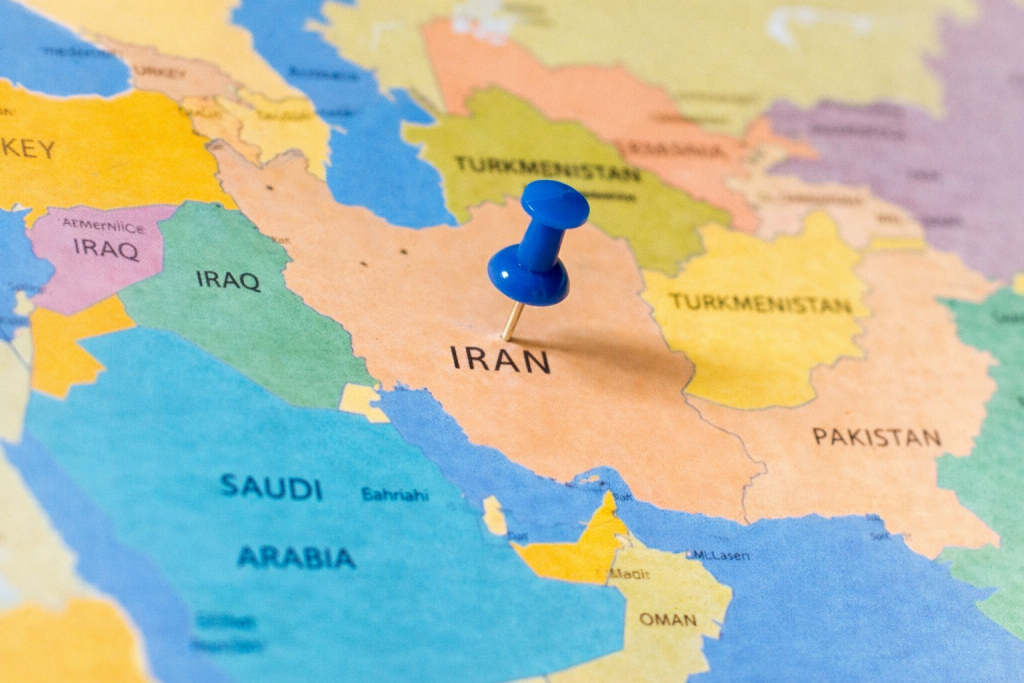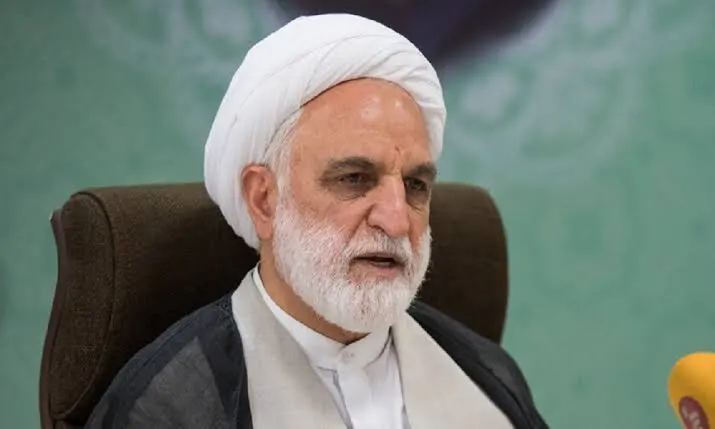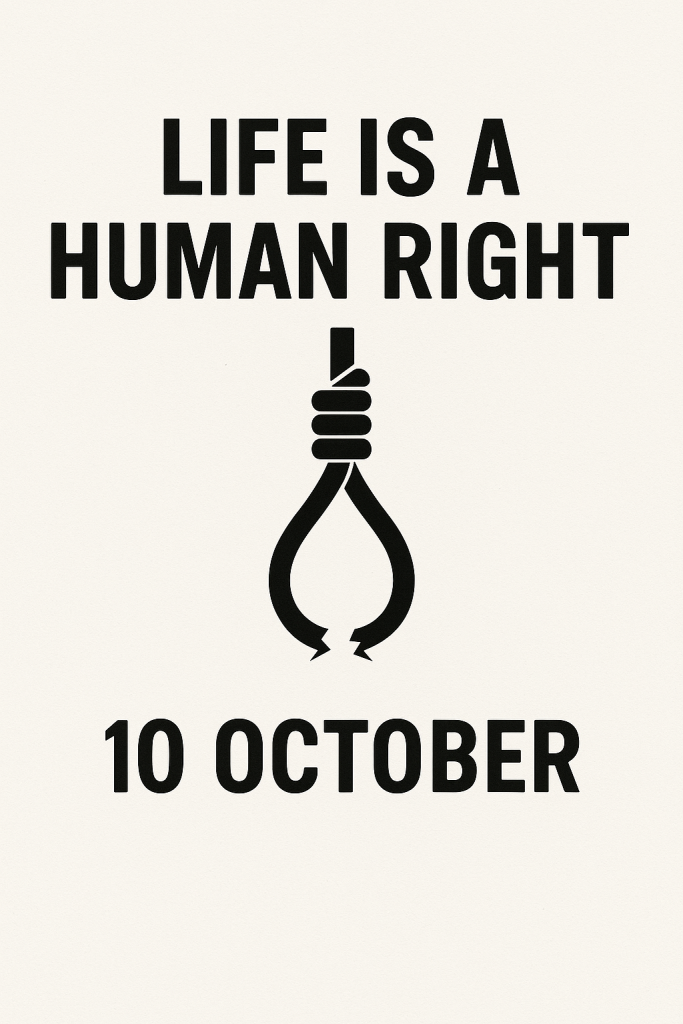The period from September 22 to October 21, 2024, might be one of the bloodiest months in Iran’s prisons this year. Despite widespread protests against executions in Iran, we witnessed a doubling of executions compared to the previous month. This period has seen the highest number of executions this year. Executions were carried out in 25 of the country’s 31 provinces, with an average of 4 people executed daily during this time.
Despite widespread international condemnation and human rights efforts to stop the killing machine, the Islamic Republic continues to carry out executions. The government’s attempt to shift responsibility for these executions to families who demand retribution is aimed at shielding the country’s judicial system from direct responsibility for these deaths.
This report is prepared not only to inform the international and domestic community but also to foster global solidarity in support of prisoners and human rights activists to increase pressure on the Iranian government. The goal is to protect and respect the most fundamental human right—the right to life.
Moreover, the report aims to amplify the voices of the victims and their families, urging citizens to echo these voices and play a vital role in building a society free of violence and executions. This path leads towards a fairer and more humane society—one where life and human dignity stand above any tool of repression.
Report Content
Between September 22 and October 21, 2024, at least 127 people were executed for various crimes. Among these cases, two public executions took place in Khomein, Markazi Province. This is the third public execution in recent months, as last month, another individual was hanged publicly in Shahroud, Semnan Province.
It is worth noting that apart from a few cases confirmed by domestic media or judicial authorities, the other instances were identified and reported by human rights organizations and activists, despite severe informational restrictions and the political and social pressures imposed on them.
Given these challenges and limitations, the report may contain errors. If more recent or accurate information becomes available, this report will be updated to ensure the data is presented accurately.
Geographical Distribution of Executions
From September 22 to October 21, 2024, executions were carried out in 25 provinces across the country, totaling 37 different prisons.
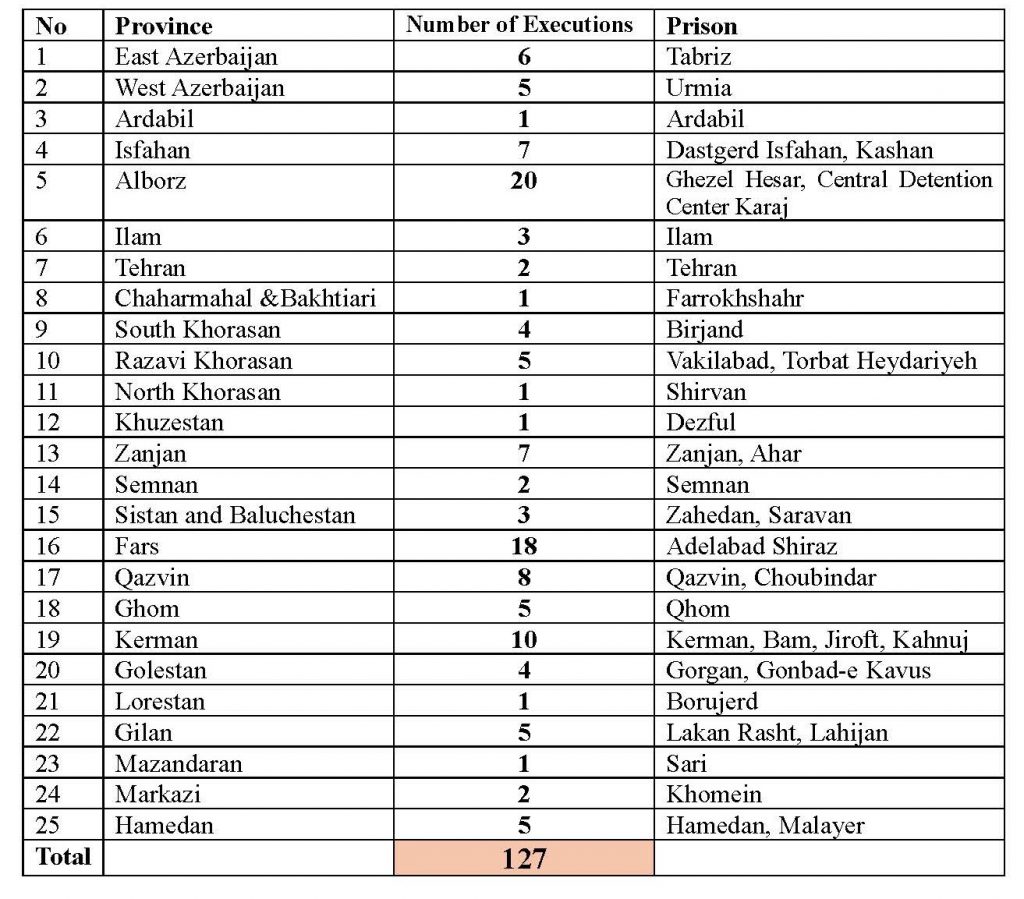
The province of Alborz, with at least 20 executions in Ghezel Hesar and the Central Detention Center in Karaj, had the highest number of executions during this period. Following Alborz, Fars Province ranked second with 18 executions in Adelabad Prison in Shiraz, and Kerman Province ranked third with 10 executions in the prisons of Kerman, Jiroft, Bam, and Kahnuj. Altogether, 37.8% of the total executions during this period were in these three provinces.
The highest number of executions was reported in Adelabad Prison in Shiraz and Ghezel Hesar Prison in Alborz, each with 18 executions. Following them, Dastgerd Prison in Isfahan had 7 executions, and Ghom (Qom) had 5.
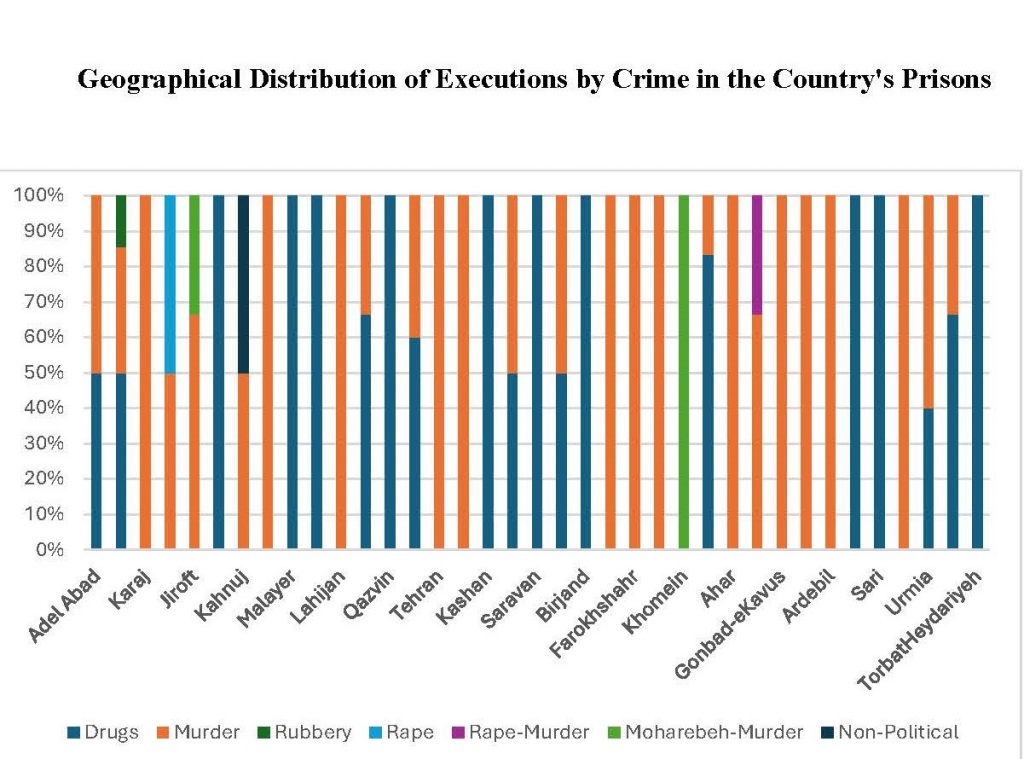
Identity of the Executed Individuals
An examination of the identity of the executed individuals reveals that 5 of them were women, with 4 of them executed on charges of retribution (qisas). Additionally, among those executed, 8 were foreign nationals. Of these, 3 were executed for drug-related offenses, 1 for murder, and 4 for rape.
While the ages of some executed individuals have not been disclosed, available information indicates that their ages ranged from 21 to 52. The highest number of those executed fell within the 30 to 40-year-old age range.
Mehdi Barahouei, who was executed on October 9, 2024, in Zahedan Prison, was a juvenile offender, having been only 17 years old at the time of committing the murder. The execution of juvenile offenders is considered a severe human rights violation, attracting the attention of many international organizations.
Marital Status and Family of the Victims
Complete information on the marital status of the victims is not available. However, reports indicate that 9 of the victims had children, with the number of children ranging from 1 to 6.
Reasons for Executions
The data shows that the executions from September 22 to October 21, 2024, were carried out for crimes related to drug offenses, murder, rape, theft, “Moharebeh” (waging war against God) and murder, and rape-murder cases.
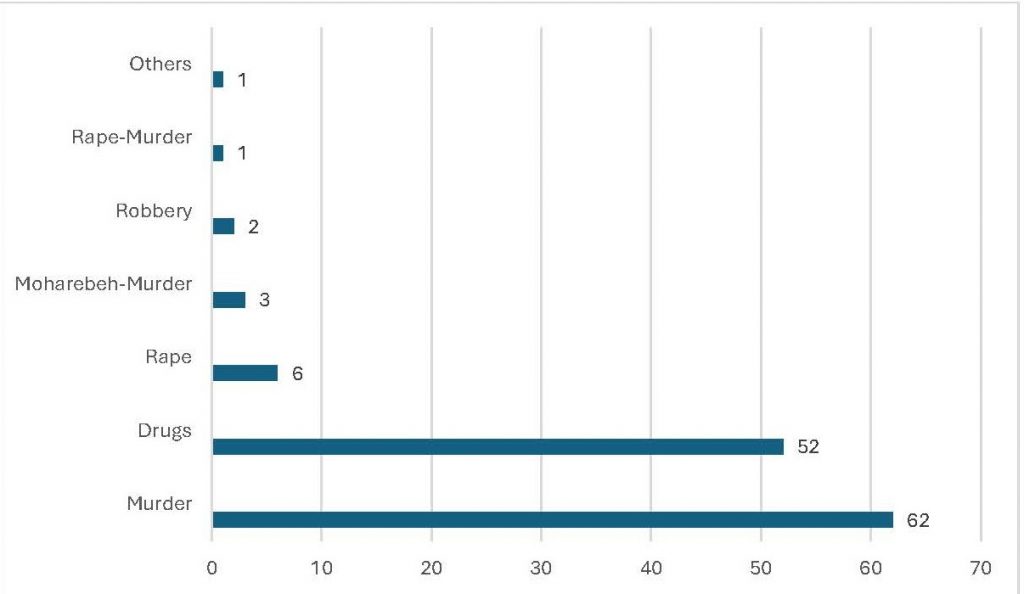
Executions for Drug-Related Crimes
According to available information, 52 individuals were executed for drug-related offenses between September 22 and October 21, 2024. This figure shows that, overall, 41% of the total executions during this period were for drug-related crimes. Compared to the previous month, when this percentage was 53%, there has been a decrease in drug-related executions.
Executions for Murder
During this period, 62 individuals were executed for murder. Additionally, 2 individuals were executed for “moharebeh” (waging war against God) and murder, and 1 person was hanged for rape and murder. Overall, 51% of the executions this month were related to murder cases. This percentage has not significantly changed from the previous month, when 50% of the executions were for murder. However, it is noticeable that executions for retribution (qisas) have significantly increased in both the previous month and this period.
Executions for Rape
In this period, 6 individuals were executed for rape, and 1 person for rape and murder, making up 5.5% of the total executions this month. According to a report from Hengaw, Mojtaba Zaferani, a 21-year-old man, was executed on September 29, 2024, on charges of rape with the intervention of Basij Sisters. His sentence had previously been overturned by the Supreme Court.
Executions for Robbery
Executions for robbery are considered one of the most severe and controversial punishments in criminal law. In this period, 2 individuals were executed for robbery, raising many concerns regarding human rights principles. In many countries, the death penalty for non-violent crimes, including robbery, has been completely abolished or severely limited. Even in cases involving violence, most countries avoid the death penalty and instead focus on the rehabilitation and reform of the offender. The execution for robbery is regarded internationally as a violation of basic human rights.
This difference in approach reflects a deep contrast between judicial systems and the philosophy of criminal justice in different societies. While many countries are moving towards reform-oriented systems, Iran continues to use executions for non-violent crimes like robbery.
Executions and the Victims’ Families: A Clear Violation of Human Rights
Although detailed information about the marital status and the number of children of only a small portion of the executed individuals has been published, considering their ages, it can be assumed that many of them had families and children. Reports indicate that, in this period, more than 16 children lost a parent due to execution. However, there is no precise information available on the ages and genders of these children.
One of the most tragic cases involves the children of Abbas Karimi, who was executed on October 17, 2024, after spending ten years in prison. His children and family made every effort to prevent the retribution. The father’s final conversation with his children before being moved to solitary confinement is considered one of the most impactful and heartbreaking dialogues recorded in the history of family retribution.
The execution of parents has profound and multi-layered effects on children, impacting not only their personal and emotional lives but also their social and psychological futures. These effects include trauma, post-traumatic stress, feelings of guilt and shame, anger and resentment, and changes in family roles. Many children who lose a parent to execution face social stigma and may encounter serious challenges in education and their future.
The fear of further loss and distrust in others can prevent the development of healthy and stable relationships in adulthood. These children often struggle with psychological problems such as depression and anxiety later in life. For this reason, the execution of parents is recognized as a severe violation of children’s rights, and many international organizations call for an end to these punishments.
Conclusion
The executions between September 22 and October 21, 2024, in Iran highlight the intensity and persistence of using the death penalty in the country, particularly concerning crimes related to murder, drugs, rape, and robbery. Despite international protests and human rights efforts to halt these punishments, the Islamic Republic continues to enforce these sentences. The increase in executions compared to previous months, especially public executions and those for crimes like robbery, raises deep concerns about adherence to human rights principles and the preservation of human dignity.
Additionally, the report indicates that powerful institutions in Iran, such as the Basij, play a significant role in judicial decisions. The involvement of these institutions, particularly in cases where judicial sentences are overturned and then re-enforced, points to the limitations of judicial independence and the influence of external factors on the enforcement of sentences. These interventions raise serious legal and ethical questions about justice and the impartiality of the judicial system.
